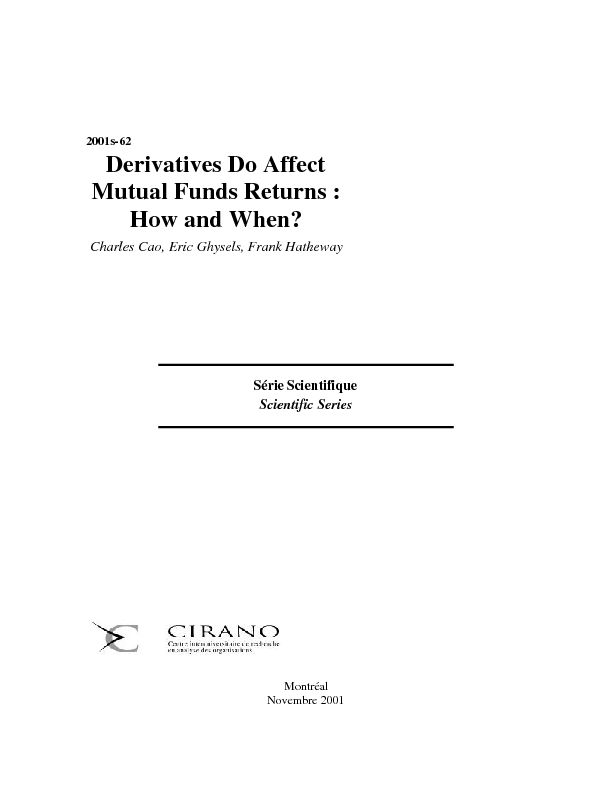Derivatives Do Affect Mutual Funds Returns : How and When?
This paper is the first to present evidence on the magnitude of derivative use by mutual funds. Using a unique data set of detailed balance sheet information on open-end mutual funds, we characterize the nature of derivative use by these funds. Most mutual funds using derivatives do so to a very limited extent that has little discernable impact on returns. However, there exist two types of funds that make more extensive use of derivatives, global funds and specialized domestic equity funds. The risk and return characteristics of these two groups of funds are significantly different from funds employing derivatives sparingly or not at all. We find evidence that fund managers time their use of derivatives in response to past returns.Specifically we show that past returns are positively related to derivative use, consistent with the cash flow hypothesis of Lynch-Koski and Pontiff. But we also find that the relationship between derivative use and past returns becomes negative at year end, which is consistent with the managerial incentive hypothesis of Brown, Harlow and Starks and Chevalier and Ellison. Finally, evidence during the financial crisis of August 1998 supports the hypothesis that the effects of derivative use are most pronounced during periods of extreme movement although there is no evidence in derivative use of managers' market ex ante timing ability.
[ - ]




